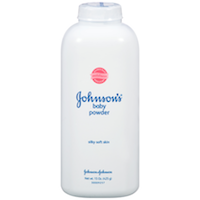
While the move is seen as a victory among those who claim that asbestos present in the powder infiltrated their lungs and caused them to develop the fatal cancer, Johnson & Johnson remained as vehement as ever in its denial of having done anything wrong. Citing “changes in consumer habits and fueled by misinformation around the safety of the product and a constant barrage of litigation advertising,” the corporation “remains steadfastly confident in the safety of Johnson’s Baby Powder.”
Internally however, J&J has shown repeatedly that the safety of J&J’s talc-based baby powder is not nearly as cut and dry as the corporation is trying so hard to make it appear. This, of course, was made no more obvious than when a number of lots of Johnson’s Baby Powder were recalled off store shelves because they were found to contain asbestos, with one retailer having ordered its staff to store the product locked away in a “secure location” so as to prevent it from leaving the premises. Store computers were also modified to prevent the sale of the product if it advertently found its way into a customer’s hands. The scientist who discovered the asbestos that led to the recall had previously been an expert witness who had been paid by Johnson & Johnson on multiple occasions to testify to the safety of the product.
J&J’s ongoing defense was also shaken to its core by a bombshell investigative report by Reuters that detailed how the corporation had known about the presence of asbestos in its talc for decades on end. And, in fact, J&J talc samples were showing positive results for asbestos contamination as recently as the early 2000s.
J&J’s response to the investigative report was the same as when news broke that a grand jury had been convened by the US Justice Department to determine whether the corporation’s conduct and handling of the asbestos issue rose to the level of being criminal – deny, deny, deny. Then, of course, there was J&J’s participation in the FDA’s 2018 Asbestos in Talc Symposium.
J&J seems to think that if they repeat the same mantra of denial enough times, that American consumers will believe it and move on. But between recalls, internal company documents, the involvement of the US Justice Department, attendance at an industry event specifically convened to discuss how to mitigate the presence of asbestos in talc, and so much more, one has to wonder just how much longer J&J intends to try to keep up this charade while American consumers are dying from lung cancer.
